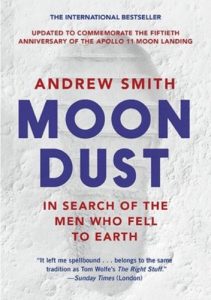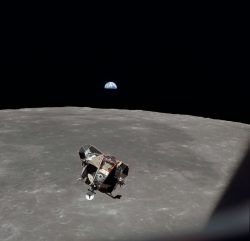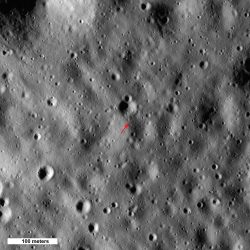Book: Moondust – In Search of the Men Who Fell to the Earth
Posted By RichC on July 14, 2019
 As we approach the 50th anniversary of Apollo 11 landing on the moon in 1969, I’ve been enjoying both television anniversary shows, articles and the book Moondust – In Search of the Men Who Fell to the Earth. The Andrew Smith book, in particular, has been enjoyable as it blends events from the author’s memory as a young boy at the time with the historic challenge of landing a man on the moon.
As we approach the 50th anniversary of Apollo 11 landing on the moon in 1969, I’ve been enjoying both television anniversary shows, articles and the book Moondust – In Search of the Men Who Fell to the Earth. The Andrew Smith book, in particular, has been enjoyable as it blends events from the author’s memory as a young boy at the time with the historic challenge of landing a man on the moon.
Smith’s memories as a kid reminded me of my life and my thoughts as a young boy in 1969. I can still remember sitting in the sun porch with my parents and grandmother (my grandfather died 4 months earlier) watching the small round-cornered console black and white television as the blurry men in spacesuits bounced around on the surface of the moon. It was an amazing achievement for the time … and considering we’ve never returned to the moon since the 1970s, it stands amazing to this day.
One of the points in particular that hit me (even today when reading this Space.com article), were the thoughts and logistical obstacles Michael Collins had as he orbited the moon. He waited alone and was responsible for the rendezvous with Neil Armstrong and Buzz Aldrin when they returned from the surface aboard the LM (Lem) to the Command Module. He contemplated returning alone in the event something went wrong. Collins in Moondust remarked that the Lunar Module’s limited 3500 pounds of thrust had to rocket the Eagle, 2-men and “moon rocks” (my addition) back to the rendezvous altitude. Collins pondered that he could orbit only to about 50,000 feet, but that any lower would be too risky considering that the highest mountain on the moon is over 35,000 feet (Mt Everest on earth is 29,000 feet).
All in all, if you are looking for a great book about the astronauts “who fell to the earth” and a few of the authors’ memories of the time as we near this month’s 50th anniversary of the Apollo 11 moon landing, you will like this book.


Comments